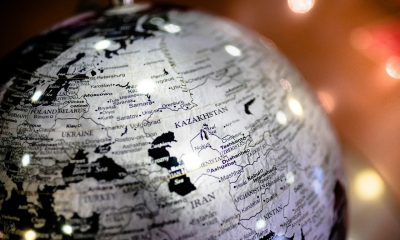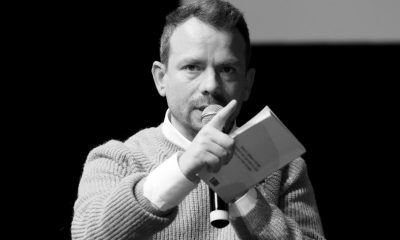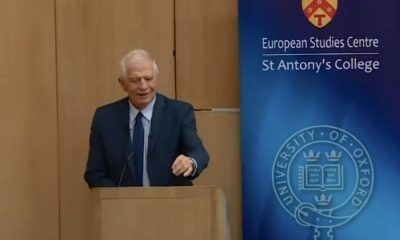Vakarų Balkanai
„Mes norime Vakarų Balkanų Europos Sąjungoje, be jokios abejonės“, - sakė von der Leyenas

The EU-Western Balkans summit ended this afternoon (6 October) in Brdo, Slovenia, European Commission President Ursula von der Leyen asserted, “we want the Western Balkans in the European Union, there can be no doubt”, except that there seems to be plenty of doubt.
European Council President Charles Michel representing the heads of government was more frank about divisions within the EU: “There is no secret that there is an ongoing discussion among the 27 about the EU’s capacity to take on new members.” He linked the doubts to what the European Union’s future ambitions were and the debates happening within the framework of the Conference on the future of Europe.
Again, Michel was surprisingly honest about one of the principle problems, the EU is already struggling with adherence to the rule of law within the European Union. As the heads of government were meeting the EU’s court of justice, published a further judgement finding that Poland was in breach of its fundamental rules on the independence of the judicial system.
EU leaders agreed on the Brdo declaration, with which the Western Balkans partners (Albania, Bosnia and Herzegovina, Serbia, Montenegro, the Republic of North Macedonia and Kosovo) have aligned themselves.
The statement “reaffirms the EU’s unequivocal support for the European perspective of the Western Balkans and welcomes the commitment of the Western Balkans partners to the European perspective, which is in our mutual strategic interest and remains our shared strategic choice,” which falls some way short of timetable for enlargement.
The most likely contenders for enlargement, North Macedonia and Albania, are coupled meaning that they can only commence negotiations at the same time. Bulgaria has said it will block North Macedonia membership over a dispute over language, which means that it could block enlargement.
The Bulgarian president Rumen Radev set out his conditions to lift its veto threat. He said that they are working on a bilateral protocol, to be presented in November, which will need to be approved by the parliament. He said he would like to see amendments to the North Macedonian constitution to recognise the Bulgarian minority and objective results from the ongoing census.
Pasidalinkite šiuo straipsniu:
-

 Bangladešasprieš 4 dienas
Bangladešasprieš 4 dienasBangladešo užsienio reikalų ministras kartu su Bangladešo piliečiais ir užsienio draugais vadovauja Nepriklausomybės ir Nacionalinės dienos šventei Briuselyje
-

 Konfliktaiprieš 2 dienas
Konfliktaiprieš 2 dienasKazachstanas žengia: Armėnijos ir Azerbaidžano takoskyros tiltas
-

 Rumunijaprieš 4 dienas
Rumunijaprieš 4 dienasNuo Ceausescu našlaičių namų iki valstybinių pareigų – buvęs našlaitis dabar siekia tapti Pietų Rumunijos komunos meru.
-

 Kazachstanasprieš 4 dienas
Kazachstanasprieš 4 dienasVykdydami aplinkosaugos kampaniją, savanoriai atranda bronzos amžiaus petroglifus Kazachstane






















